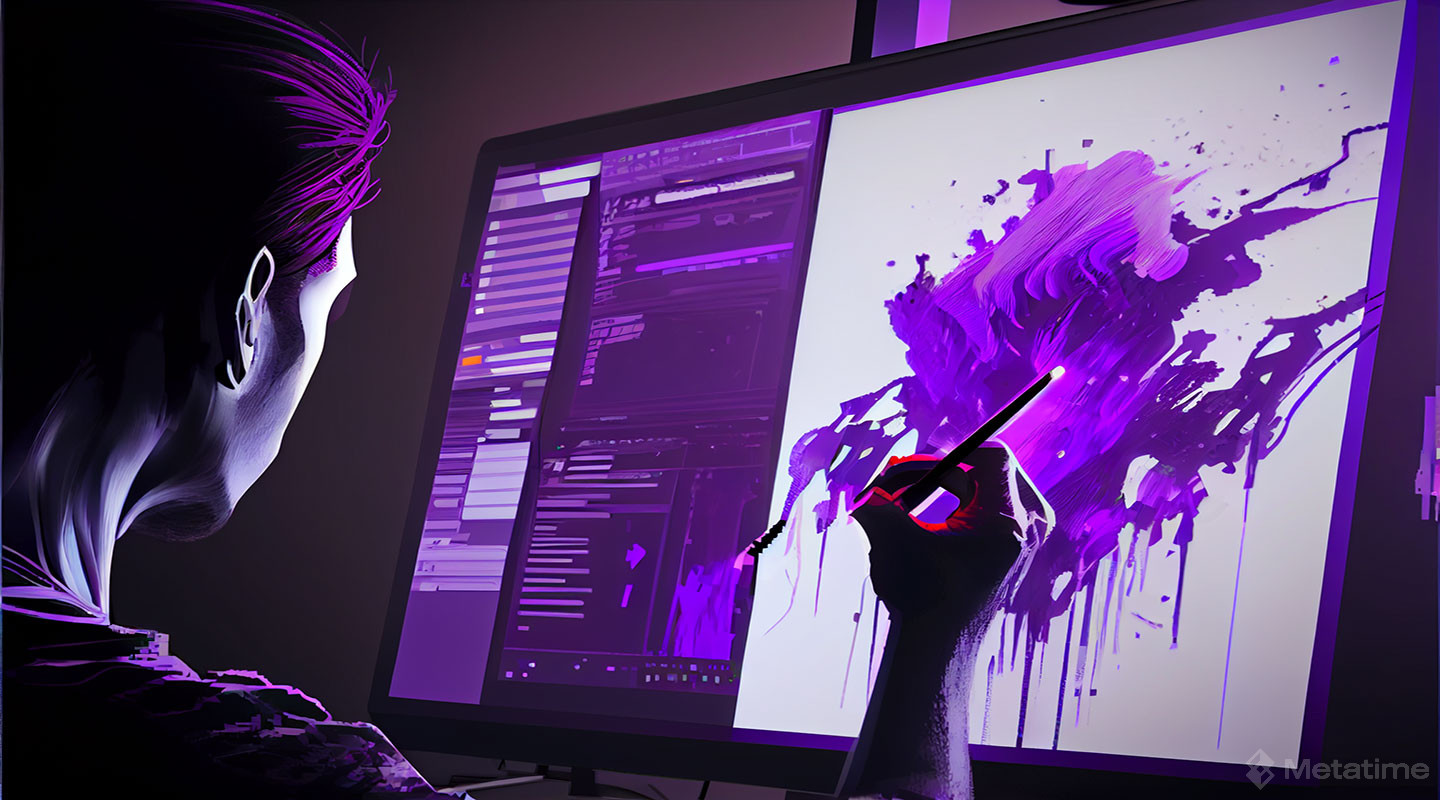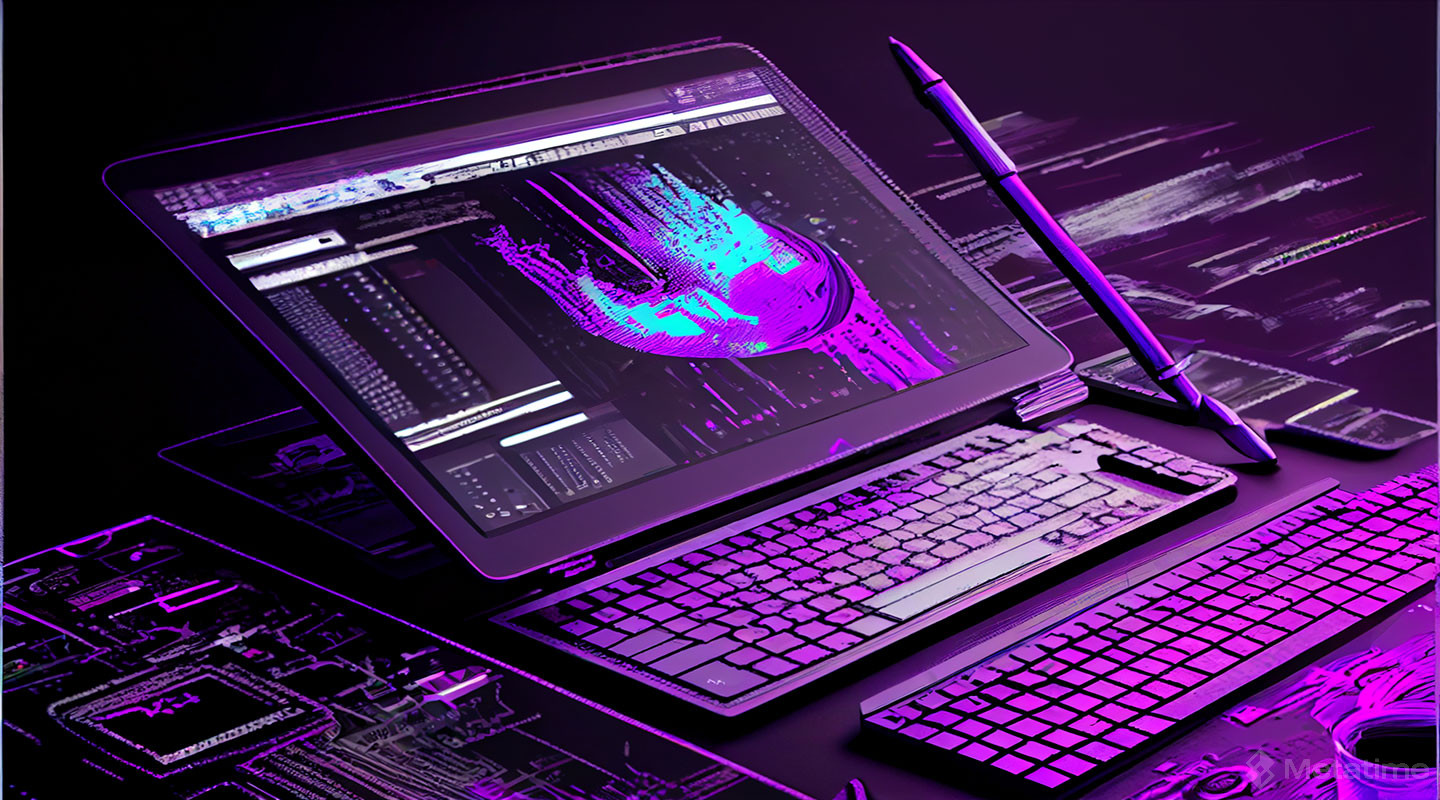NFT (Non-Fungible Token) is one of the most important concepts that has entered our lives with blockchain technology. NFTs bring 'uniqueness' and 'ownership' to digital assets, and they are created by transferring files such as visuals, videos, gifs, or sounds to the digital format. In addition, NFTs stand out with their various areas of use, from virtual real estate to concert tickets.
NFT, consists of the initials of 'Non-Fungible Token'. Each NFT, which are digital assets produced with blockchain technology, has a 'unique' digital key. This makes an NFT non-fungible by anyone except for the holder. NFTs are typically produced using Ethereum's ERC-721 and ERC-1155 standards. The usage areas of NFT assets are also quite wide; NFTs are used in many areas such as art pieces, music files, digital collections, games, and virtual stores and lands.
We can list some popular NFT marketplaces as follows:
- OpenSea
- Rarible
- SuperRare
- Foundation Marketplace
How to Create NFTs?
Converting any digital asset into an NFT is called 'NFT Minting'. Anyone with internet access can create NFTs and sell them on marketplaces. Although each NFT platform has its own unique usage features and rules, the steps to create NFTs can be listed as follows:
- Create a cryptocurrency wallet
- Transfer the cryptocurrency used on the NFT platform to your wallet
- Click the 'Create' button to convert the desired digital product into an NFT
- Thus, the created NFT is stored on the blockchain and has a 'unique' key.
During the NFT creation process, NFTs are encrypted on the blockchain network with 'hash function' and 'cryptographic encryption' algorithms. NFTs can be traded on marketplaces such as OpenSea, Rarible, and Nifty Gateway.

How to Buy and Sell NFTs?
To buy and sell NFTs, a crypto asset wallet is required. The most commonly used of these wallets is MetaMask. Then, a sufficient amount of cryptocurrencies must be sent to the wallet to cover the transaction fee and the NFT price. The cryptocurrency accepted by the NFT platform varies depending on the marketplace. Then, the wallet is connected to the NFT marketplace and the NFT buying and selling transaction is completed.
Where Are NFTs Used the Most?
Nowadays, the areas of use for NFTs are increasing rapidly. The most common areas where NFTs are used are as follows:
- Gaming
- Brand Collections
- Identity Information
- Event Information
- Copyrights
Gaming
In-game items and characters are converted into NFTs, and their buying and selling take place in created marketplaces. In-game NFTs increase player interactions and can also help to generate financial revenue. In-game items and characters are used in a large-scale gaming ecosystem.
Brand Collections
Brands can create collection products with NFTs. These collection products are offered to consumers to develop brand awareness. In addition, NFTs representing products are being created and sold to enhance users' loyalty to brands they are fans of.
Identity Information
NFTs are used to reduce the proof of proving identity information or professional certifications.
Event Information
NFTs can be used to create, distribute, and trade tickets for events.
Copyrights
NFTs can be used to register the copyrights of specially created products such as artwork. All necessary data is securely stored on the blockchain network.
How to Determine the Value of An NFT?
The most important thing determining the value of NFT assets is their uniqueness. As cryptocurrencies, NFTs are stored on the blockchain network. Each NFT created is a unique digital asset that has no other copies. This is why some popular NFTs are bought and sold at very high prices on marketplaces.
The price of an NFT is determined by its creator or investor. The value of NFTs can vary depending on the market and the supply-demand rate.

What Are the Types of NFTs?
NFTs have different types with various uses and features. The most commonly known types of NFTs are:
- Art
- Collectible
- Gaming
- Utility NFTs
Art
Digital art, which developed with the internet, has become more widespread with NFTs. Art NFTs include illustrations, photographs, paintings, and other visual arts. Art NFTs also allow artists to make profits from their works and maintain ownership. On the other hand, it offers collectors the opportunity to own unique and verified digital works. For example, in 2021, a digital artwork by the digital artist Beeple was sold for $69 million, setting a record.
Collectible
NFT collections refer to NFTs that are collected and traded in a similar way to physical collections such as stamps or oil paintings. Unique digital art pieces, videos, GIFs, or digital pets, which are produced in a limited number, can be given as examples for collections.
Gaming
Gaming NFTs are digital product NFTs such as in-game items or characters used in the gaming industry. These NFTs are used to represent digital assets in any game and can be bought, sold, or swapped by players.
Utility
Utility refers to NFTs that have a specific function, such as access to a membership program or the right to vote on a particular issue. Utility NFTs provide privileges to access some services or benefits.
What Are the Advantages of NFTs?
NFT assets offer several advantages to users. The most important advantages of NFTs are their uniqueness, non-fungibility, and transparent verification. The main advantages of NFTs are:
- Ownership
- Liquidity
- Transparency
Ownership
One of the key features of NFTs is that they democratize art collecting. NFTs allow more people to own digital art. Since NFTs represent unique digital or physical assets, ownership of these assets can be verified, and imitation is hard.
Liquidity
NFTs allow rare items to be traded online, making them more accessible to a wider audience. This means that more people can invest more money, increasing the value of these assets.
Transparency
One of the most important features of NFTs is that all data is stored on the blockchain network. Thanks to the transparency offered by blockchain, the history and originality of NFTs can be easily verified. Additionally, NFTs are difficult to imitate or replicate due to blockchain technology. This reduces the risk of fraud, helping collectors and investors secure their digital asset investments.
What Factors to Consider When Buying an NFT?
There are many important factors to consider before buying an NFT. While these may vary depending on the investor's goals or economic expectations, we can list these factors below four main headings:
- Purpose
- Community
- Benefit
- Vision
Purpose
One of the most important factors to consider when reviewing a project is its purpose. "Why was the project created?" or "What is the project working towards?" are questions that need to be answered before getting involved or investing in a project. The purpose shows the direction, goals, and planned path of the project. The purpose should also address to people's emotions.
Community
It is important to research an NFT project before getting involved. You can get an idea of the community through the project's social media accounts. Social networks such as Twitter and Discord are frequently used platforms in NFT projects.
Benefit
An NFT project may have benefits other than financial income. For example, some NFT projects offer special memberships. Owning an NFT in such projects comes with advantages such as the right to participate in events or meet famous people. Such benefits can attract more people's interest in the project.
Vision
When evaluating an NFT project, it is important to see how it positions itself to take advantage of future trends. What structures have been created? How have they been integrated for the use of the owners? Answering such questions shows the project's future plans and the areas it invests in.
MetaNFT Marketplace
MetaNFT is an NFT marketplace platform founded by Metatime. MetaNFT is set apart from others with its user-friendly structure that is suitable for every need and user. Users on MetaNFT also have the opportunity to sell, tokenize, or rent their NFTs. MetaNFT also offers many customization options such as page color, icon packages, and page layout to its users.







